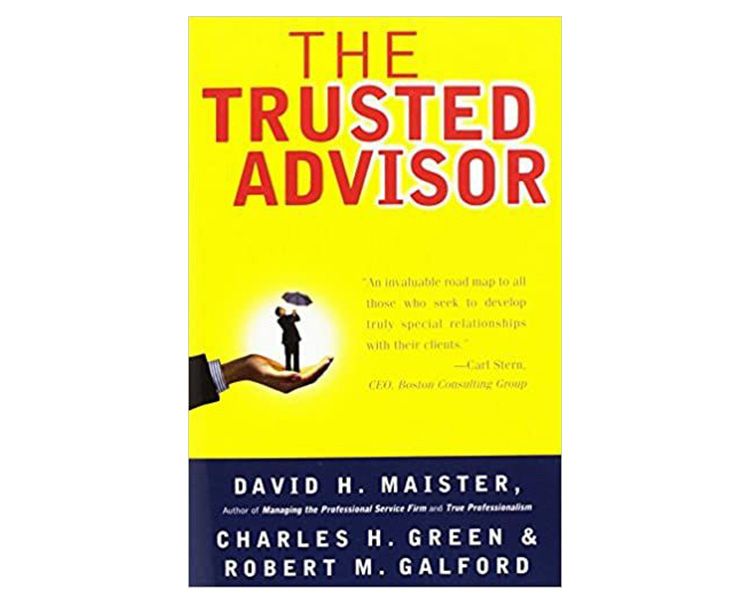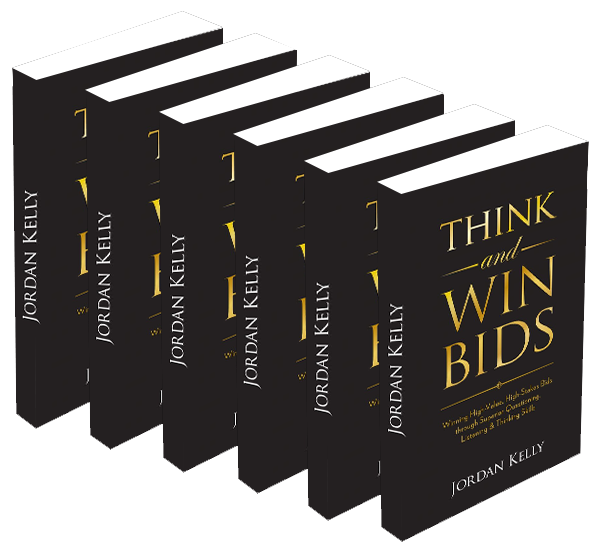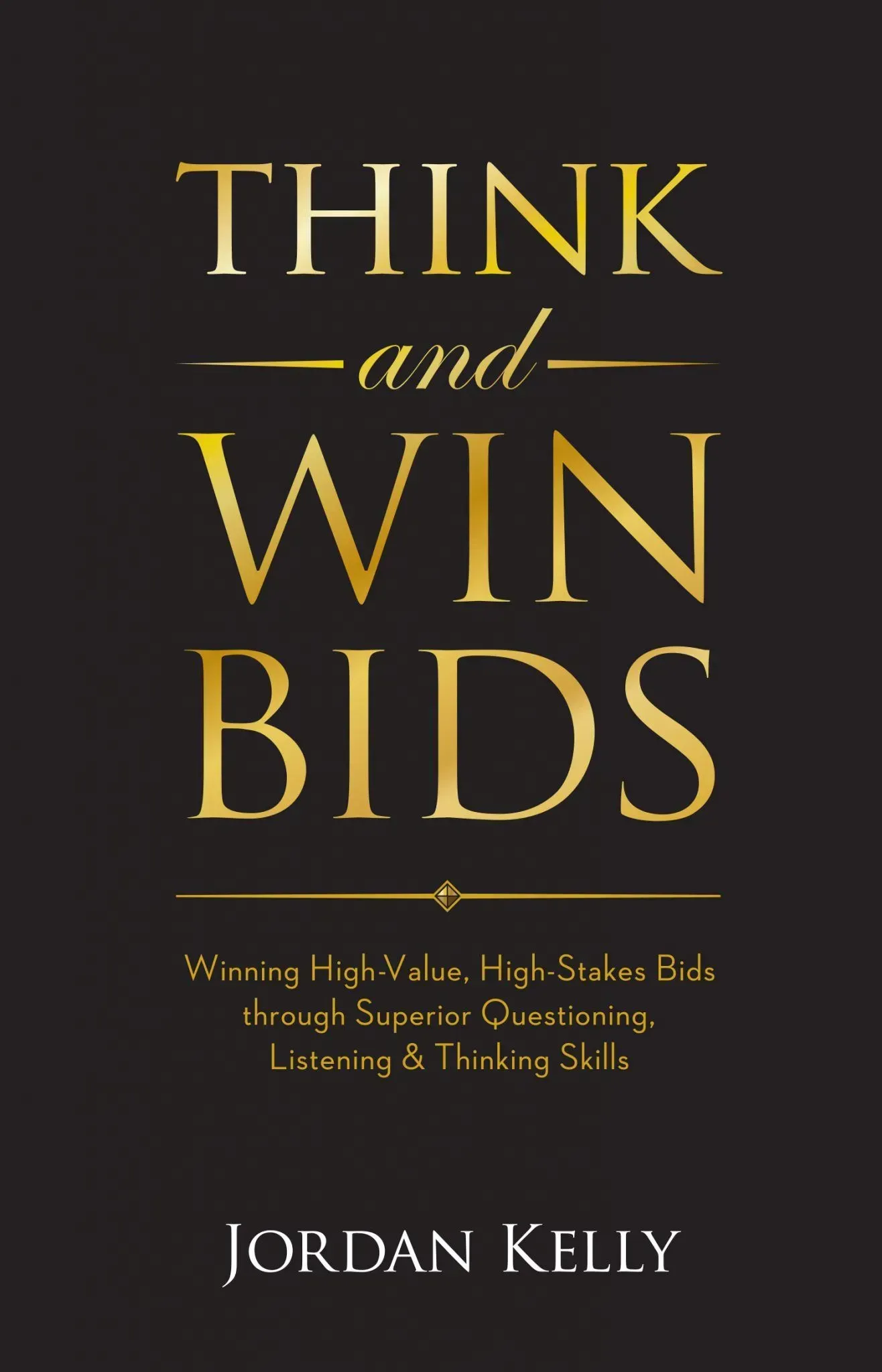CATEGORIES:

Over the past couple of decades, the term "trusted advisor" has gradually worked its way to buzz phrase status.
Such lightweight bandying around is a great pity because, unlike other corporate mumph, "trusted advisor" is a genuinely meaningful concept.
Here’s something I can literally guarantee (an undertaking never to be applied loosely):
The company, sales team or executive treating the concept as a verb rather than some fashionable noun, will find that – over time – the practice pays significant dividends both when pursuing new business and when endeavouring to satisfy existing customers and clients.
‘The Consultant’s Consultant’
Did you know the origins of “trusted advisor”, and the tenets of the practice?
The term was coined by former Harvard Business School professor, American writer and expert on business management practices, David Maister, in his (co-authored) runaway best-selling business book of the same name – published back in the year 2000.
Before he retired, Maister was known as “the consultant’s consultant”. He commanded some of the highest fees paid to any business consultant anywhere, for his work with professional services firms.
His advice holds so much relevance and potential power for bid teams, that I sought his written permission to excerpt and/or distil certain of his key points and include them in my book, ‘Think and Win Bids: Winning High-Value, High-Stakes Bids through Superior Questioning, Listening & Thinking Skills‘.
Distilling his advice, in all its detail and richness, was a challenge. I read and re-read many times over, his words of wisdom, before I attempted the exercise. After all my deliberation, here are what I considered the six most important of the tenets comprising his “trusted advisor” philosophy – and how they underpin successful bidding practices:
1) Ask the client to talk about what’s behind the issue.
Too many business development operatives think they understand the client deeply just because they’ve spoken about the central issue driving a procurement exercise.
Rarely do they dig deeply enough . . . down, down, down into the political, historical and/or emotive picture
beneath the surface of that issue.
2) Focus on
defining
the problem; not on guessing the solution.
A logical follow-on to the above point, too many bidders are quick to rush in with their wonderful “solutions“, without genuinely and deeply understanding the problem.
3) Let the client or customer
fill in the empty spaces.
“He who speaks least, listens loudest.”
I’m pretty sure I just made that up (if not, it’s a quote that’s lodged in my head from some sage somewhere).
4) Use
reflective listening
to ensure you’ve heard and understood.
No space for a lesson on this very valuable and very specific type of listening skill here, but if you have an interest in progressing your knowledge of it, it’s covered in an unglamorous (but top-notch, content-wise) textbook I wrote some years ago for the independent business college sector,
‘How to Build Winning Customer & Client Relationships‘.
If you want a copy, contact me.
5) Tell the client’s story before
writing your own.
This is in line with my frequent admonition that the only interest the client has in you, is what’s immediately relevant and of value to them and their need.
Thus, everything you tell them about you, needs to be in the (prior-created) context of them.
6) Listen to EVERYTHING.
And here I’ll quote the wise old saying:
You’ve got two ears and one mouth. (Nature had her reasons. They were good ones.)
The piece of
the picture you missed because you were distracted, were planning your next statement, or were thinking about how your intended proposition can be made to fit their need, may well have been the most critical component of all in your much-needed understanding of their “big picture”.
If nothing else, it will frustrate the client tremendously if they’ve taken the time to explain their issues to you and, in your bid documentation, you demonstrate gaps in your understanding – gaps that, in their mind, have no right to exist, given the time they spent with you.
THINK AND WIN BIDS
Winning High-Value, High-Stakes Bids through Superior Questioning, Listening & Thinking Skills
(Book)
The three fundamental skills of a genuinely sharp, sustainably successful bid professional are the ability to think, listen and ask quality questions.
Furthermore, formulating successful business development and bid strategies is the process of well-directed research and thinking; not the product of tools and templates.
THINK AND WIN BIDS
Winning High-Value, High-Stakes Bids through Superior Questioning, Listening & Thinking Skills

(Six-Pack)
Ideal to ensure your entire team of writers and contributing subject matter experts are all on the same page, Think and Win Bids is offered as a six-pack
(6 books for the price of 5).



